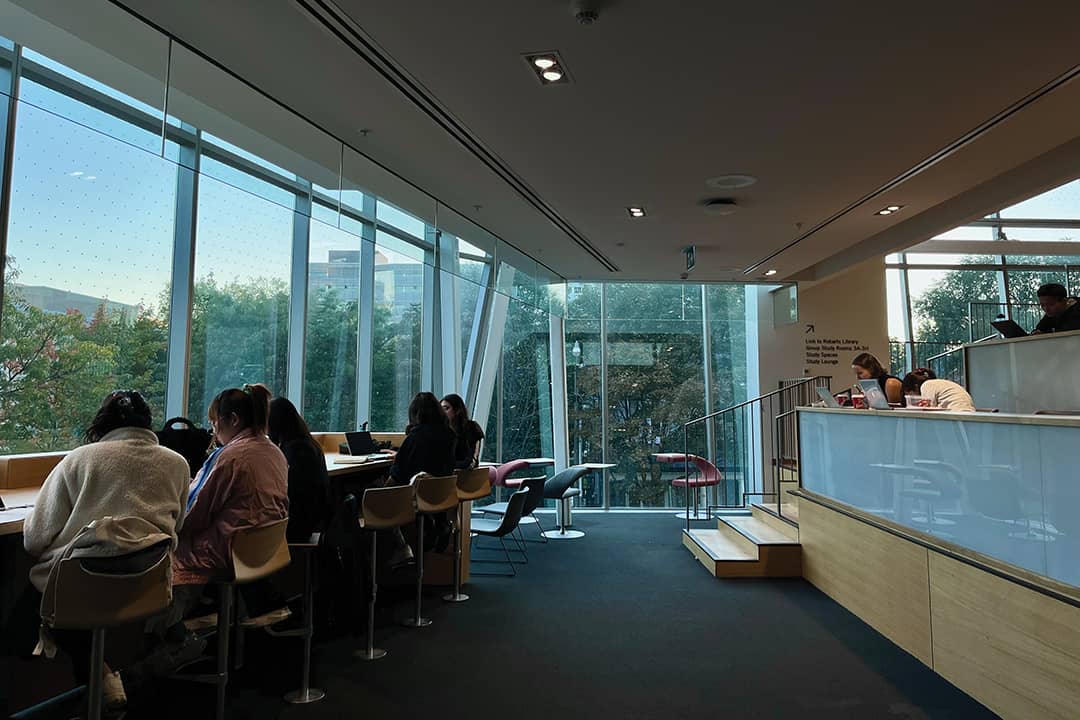On September 9, U of T celebrated the official opening of Robarts Common, the additional space to Robarts Library that includes increased areas for studying and socializing. When thinking of the new study space at Robarts, I cannot help but be reminded of a piece of wisdom Harold Howe II shared decades ago: “What a school thinks about its library is a measure of what it feels about education.”
Howe’s words date back to when libraries were exclusive spaces full of books. In 2022, a typical library consists of technological devices and study spaces amidst the books, which always seem to be untouched. Hence, a year short of Robarts Library’s 50th anniversary, the formal opening of additional space to the largest library on campus is an opportune time for the school to reevaluate the essential value and purpose of the library.
As time passes and technology seeps deeper into our everyday life and education, the public needs libraries to continue to transform. Libraries are no longer the havens or the treasure troves that hold captive information that is unavailable anywhere else. Does this mean that libraries are dying?
Long story short, they aren’t. Most recently, Canadian public libraries saw significant surges in registration numbers throughout the pandemic, despite stringent in-person provincial capacity limits. The core reason, however, does not lie in books but in the sense of community that libraries provide. Cultural events, movie screenings, and arts and crafts groups are only fragments of what libraries provide people as community hubs.
Academic libraries do not differ. Rare is the university library that is not full of tireless students peering at their laptops and tablets while typing or reading. U of T’s libraries, regardless of size and location, continue to bustle day and night with students visiting for every reason other than to read its books.
Despite how it sounds, I am not pointing a finger at students for being the root cause of the decline in libraries as a treasure trove for books. After all, as a student myself, I know that the academic and work schedules for the majority of students do not allow for leisurely lingering at a university library for a good book. I also know that most academic materials are available online and coursework mainly remains in the digital sphere.
But what is a library? The word itself is derived from the Latin word ‘liber,’ which literally means “book.” In a modern-day university library, students may neither be taking part in reading for pleasure nor research, but libraries remain popular because they allow students to study on their devices, socialize, and hang out. However, I can’t help but ask the question — hasn’t it then become contradictory to call this space a library?
I do not disapprove of how libraries have evolved. The current form of academic libraries ultimately helps students focus on their studies and public libraries provide a safe space for a community to build. We should also not disregard digitized library systems in which books are virtually stored. But what are we to do with the physical ‘liber’? Have books not become mere decorative objects?
This decreased interest in library books does not necessarily mean that there is a waning interest in paper books. After all, Canadians between the ages of 18 and 34 were shifting towards print and gravitating away from ebooks quicker than any other age group in 2020, while print book sales in the United States continued to rise as of 2021. Simultaneously, there are increasing numbers of data analyses that prove that paper-based reading reaps better comprehension results than digitally-based reading. Even as digitally-based reading became widely prevalent, the numbers that prove that the alternative is effective are static.
So, we must question U of T: will your grand collection of books remain as a decorative appendage amongst social spaces, study rooms, computers, and cafes? Or can we start integrating the use of books and library services into academic courses? Could we see more flexible time frames for writing papers to incorporate time for library research, or are we to cling to the web for our research?
Eleanor Park is a second-year student at Trinity College studying English and religion. She is an associate comment editor at The Varsity.


